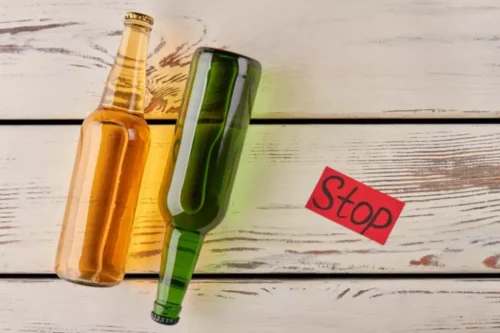
This contrast between Chandler’s all-or-nothing approach and Joey’s more relaxed attitude illustrates the conundrum many of us face when it comes to quitting or cutting back on alcohol. Moderation often requires that you take anti-craving medication for an indefinite period of time. Medication makes it easier to put the brakes on after a drink or two, and sticking to moderation is challenging without it. If you want to resolve problem drinking without medication, abstinence may be a better choice for you. By supporting structured, flexible, and client-centered documentation, ICANotes empowers clinicians to practice ethically and effectively—whether clients are pursuing abstinence, moderation, or simply reducing harm. These individuals notably made up just 14% of the sample, the smallest group of the three.

The Importance of Abstinence in Addiction Recovery
Identifying situational factors such as our individual goals and alcohol’s negative effects on our life can help us decide between drinking moderately and abstinence. If you have health problems related to alcohol, it may be unsafe to drink at all, period. In this case, abstinence is the best way forward for your health and safety. By quitting drinking completely, your body can begin to repair the damage caused by alcohol. Starting from zero can give you the clarity and confidence you might need to engage in a moderate relationship with alcohol or your drug of choice.
Treat Clients With Climate Anxiety by Integrating Eco Therapy

So, alcohol abstinence vs moderation even if we think we’re practicing moderate drinking, we might not be. The negative effects of your drinking may have turned you off of alcohol entirely, and that’s completely okay. If your reason for choosing abstinence is simply that you want to, that’s a perfectly valid reason to quit alcohol altogether.
Eating Locally Sourced Foods Has Benefits For Mind And Body

Implementing a harm reduction approach requires careful planning, collaborative goal setting, and consistent monitoring—all of which depend on accurate and thorough documentation. The ICANotes Behavioral Health EHR offers powerful tools that enable clinicians to seamlessly incorporate harm reduction strategies into a client’s treatment plan while maintaining a clear clinical narrative. Along these lines, a lot of people don’t drink due to health issues that are exacerbated by drinking, such as liver disease, heart conditions, or certain medications that interact negatively with alcohol. Others may avoid alcohol to maintain overall physical and mental health. It shouldn’t be a challenge to enjoy a few beers at a barbecue or wind-down cocktails with friends after work. Unfortunately, many factors contribute to alcohol addiction, so some people are simply healthier if they opt not to drink.
- Abstinence from drinking is typically considered the traditional approach to treatment and is sometimes required in programs like Alcoholics Anonymous.
- Mindful drinking strategies include not only setting limits but also identifying triggers, evaluating our emotions, tracking our consumption, and using this information to develop healthier drinking habits.
- But we can also implement mindful drinking for a more extensive approach to bettering our relationship with alcohol.
- “Harm reduction” strategies, or moderation techniques, set more flexible goals in line with patient motivation.
- Mindful drinking also helps us address the root causes of our drinking and helps us develop positive strategies to overcome them.
- However, the MAT protocol also allows for some people to remain on certain drugs if it helps them reduce their dependence on more complicated substances—such as taking methadone for heroin addiction, for instance.
- We offer alcohol and drug detox services, dual-diagnosis addiction treatment, medication-assisted treatment (MAT) and more.
- It is clear from looking at the research that if you want to increase your odds of success, abstinence is the way to go.
- This is because not only is it beneficial to be surrounded by those who share a similar goal to you, but it can also be validating to witness others’ struggles that mirror your own.
- However, there are other reasons to choose not to consume alcohol, which often helps reduce the stigma of being the only person not partaking.
Maybe during this time, try some non-alcoholic alternative beverages and notice how you feel. It also gives you a way to reframe the conversation if you’re gathered with friends and family so the focus is less on the substance and more on community. Furthermore, when alcohol begins to take priority over friends and family, work responsibilities, or personal health, it may be time Sober living home to consider a treatment plan. Understanding your relationship with alcohol is easier said than done, but there are some signs to look out for if you or a loved one are dealing with alcohol abuse. Knowing the warning signs can be critical in determining when to seek treatment.
